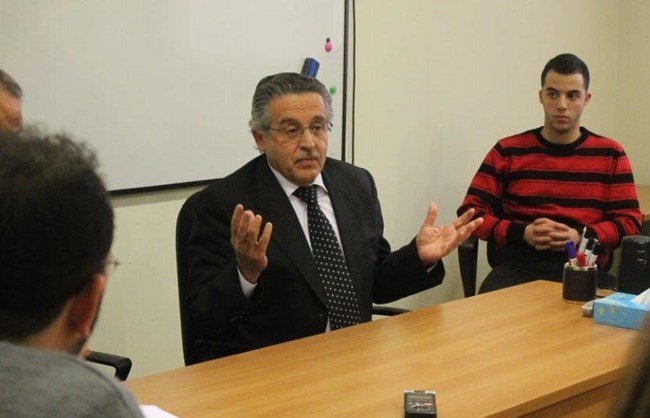Image:

16 Dec 2013
<br />
<br />
<br />
<br />
<br />
<br />
<br />
<br />
<br />
<br />
<br />
<br />
<br />
<br />
<br />
<br />
<br />
<br />
<br />
<br />
<br />
Saturday 7/12/2013<br />
<br />
Dr. Abdul Rahman, Head of the Palestine International Institute and member of the Palestinian National Council, said that the resilience of the Palestinian people represents the highest level of resistance and has deeply affected the Zionist plan. He explained that this plan was primarily established on two principles; increasing the area of land controlled by Israel and having as few Palestinians as possible.<br />
<br />
During the lecture delivered to JMI’s master’s students, Dr. Abdul Rahman added that the Palestinian cause is one of the oldest liberation causes in the world, and has become the cause of free people on the Arab, Muslim and international levels. He noted that the alliance between the US as an International superpower and Israel as a regional superpower is one of the factors that hinder and govern the negotiations and the peace process.<br />
<br />
He explained that after months of resuming the Palestinian-Israeli negotiations under the auspices of the Unites States, two scenarios emerged. The first scenario offers a dark, bleak picture as it is obvious that Israel is taking clear actions impeding the negotiation process, and, therefore, narrowing its horizon. The second is an optimistic scenario that depends on analysis and political thinking as a reference and a framework for the negotiations.<br />
<br />
Dr. Abdul Rahman pointed out at the end of the lecture that the ongoing Iranian deal will have a direct and strategic impact on the Palestinian-Israeli conflict.



